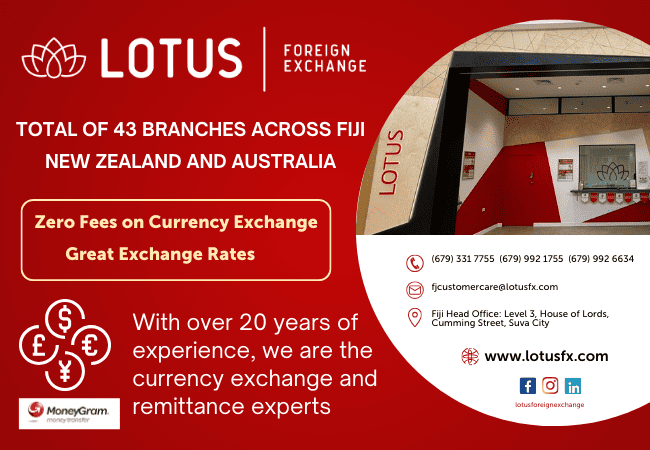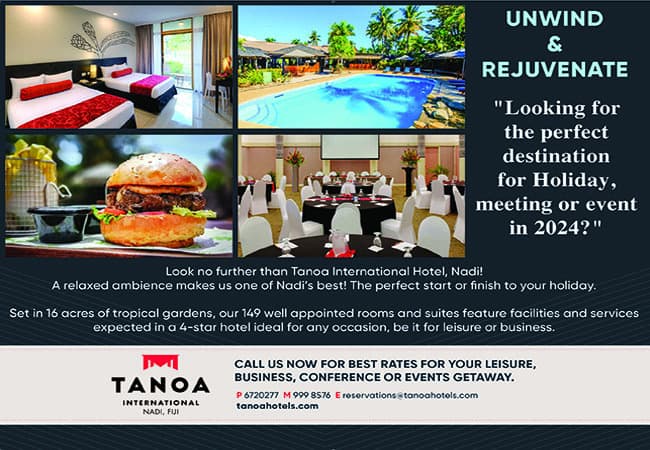By Samantha Magick
When Lagi Toribau first walked into Greenpeace Pacific’s Suva office more than 20 years ago, he could not have possibly predicted that it was the start of a career that would take him all over the world with the activist organisation.
Even now, as he recounts his journey, there’s a faint tone of incredulity in his voice.
Toribau, who hails from Viwa, Tailevu on his father’s side, and Naitasiri on his mother’s, is currently Acting Executive Director for Greenpeace Canada. The organisation was founded in Vancouver, Canada in 1971, so the sense of history and significance of the posting is not lost on him.
“I’ve always been curious,” he says. “I’m the youngest of seven. I’ve always been the child that ask questions all the time. I always used to get into trouble with my parents, because I’m always outspoken, and my older siblings used to use me for things that they wouldn’t dare speak to my parents about. And I would do it just out of curiosity. It got me into a lot of trouble. But my parents also appreciated me a lot, because I wouldn’t just take things for granted and for what they seemed.”
Toribau was studying business management at university when he began volunteering at Greenpeace. He says, “all I knew were hippies, whales, you know,” but as he spent time there, grew to understand just how big the organisation was.
From answering phones and helping guide school students around the Greenpeace library, Toribau began working on the organisation’s oceans campaign, documenting fishing boats that were active in the Pacific.
“The moment that I will never forget was my 21st birthday. That was when the Rainbow Warrior [vessel] was here. It was my first ship tour. We did, I think six Pacific Island countries at that time, and on our way out from Suva, first off was Kiribati. And Fiji being small, it was actually one of my cousins that was working on one of the fishing boats out in the high seas. We were approaching the boat, and my job on the boat was to verify the details of fishing boats, and whether they were legal or not.”
That personal connection—his cousin had been at his birthday celebration just weeks before—meant they could board the fishing vessel and enter Kiribati.
Toribau describes the ship tour as a baptism of fire. After completing his day’s work on the boat, he stayed up late, “reading up on fisheries agreements, trade agreements, research papers, scientific papers while at sea. And I gained my confidence. And I do recall getting off the ship in Papua New Guinea [three months later] and thinking, ‘Yes, I think I can do this.’”
He ended up doing seven ship tours over the course of six years, spending three months at a time at sea ‘chasing pirates.’
“I think that’s what turned me into a true oceans campaigner. I’ve seen it all at sea, I did it all at sea,” Toribau says.
From Fiji, where he was eventually promoted to the head of the oceans campaign, Toribau was posted to Beijing, as Greenpeace began campaigning on fisheries in Asia for the first time.
“Part of me taking up that job was also about me trying to deepen my understanding on the geopolitical landscape. So my job was to set up the development of the East Asia strategy that would cover Mainland China, Korea and Hong Kong.”
From Beijing, he spent two and a half years in Korea.
“We set up our nuclear campaign, oceans campaign, a climate and energy campaign, we built up our fundraising team, managed to get 20-plus local Koreans [employed] and I was the only foreigner.”
Toribau says this is when his leadership journey really began.
“I knew I had it in me. But I think the fact that it was a new operation, and I had to set up a team, a new organisational plan, develop its budget. I was able to groom a lot of the campaigners. The fundraising part was the new area for me, but I’m a risk taker. I push the envelope, I push myself.”
Toribau subsequently spent over two years in Australia working as the global leader of Greenpeace’s tuna political team, before moving to South Africa in 2016 as program director.
“Greenpeace has quite a very big operation in Africa. Our headquarters is in Johannesburg. We have our fisheries operation in West Africa, out of Senegal, our forest operation is in the Congo, we’ve got two bases, one in Kinshasa and one in Cameroon. Our food and agriculture operations are based out of Kenya. So I was the program director, we cover a huge part of the continent.”
In Africa, Toribau developed a keen interest in ‘systems thinking’—understanding connections, relationships and complexities between issues—”to think beyond boundaries, to think beyond issue specificity, to think beyond status quo, and not being too comfortable or being scared of change. So I started writing about some of these things as well and blogs and speaking about this in various spaces inside the organisation.”
At this time, Toribau’s mother passed away suddenly, and he decided to come home to care for his father. For seven months at home he did some post-graduate study at the University of the South Pacific and worked with the Fiji government.
Then he returned to Asia, this time to run Greenpeace International’s food and agriculture campaign from Taiwan. By then, Toribau had developed a reputation as a troubleshooter, so his next posting was back to Africa, which had experienced a ‘governance breakdown’.
“After I left Fiji, when I went to Taiwan, I was a lot calmer. I think that’s probably maturity,” he says, laughing. “I could see things with a lot more clarity. Something happened to me, I sort of evolved into being a lot more deep in thinking, sharing a lot more, being a lot more strategic in directions in the organisation.
“A lot of that was I think, me being a lot more purpose driven. Now, I think part of that realisation is knowing that it’s service. It’s being able to find those places where I could be of added value without feeling like I have to be everywhere. And so I’m a lot more deliberate now.”
Toribau is not sure what is next after his Canadian contract, although he would like to write about his diverse experiences. “My heart is still here. I now know where my heart is, and it’s coupled with experience that I have learned to be able to give back.”
This article first appeared in Fiji Traveller, January 2023.


Aisake
says:Really empowered by this story. Welcome Back home. You really did Fiji Proud and your family.